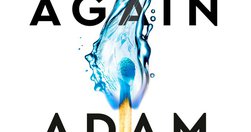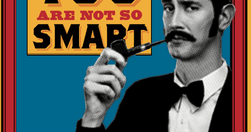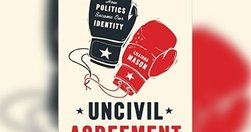Relevant Overviews
- Communication Strategy
- Content Strategy
- Social Media Strategy
- Content Creation & Marketing
- Digital Transformation
- Personal Productivity
- Innovation Strategy
- Surveillance Capitalism, Social media and Polarisation (Overview)
- Communications Tactics
- Psychology
- Social Web
- Media
- Politics
- Communications Strategy
- Science&Technology

Win my place at David McRaney ’s upcoming workshop by helping me write a chapter in an upcoming book on Personal Knowledge Graphs.

A YANSS interview with Adam Grant, author of Think Again: The Power of Knowing What you Don’t Know. Generally an "extensive exploration of how to rethink your own thinking", including his WorkLife podcast interview of Margaret Atwood on procrastination.(When annotating a podcast I really like a transcript, but there was none for this episode so I …

"Feeling stuck?" This YANSS podcast is with "professor, author, therapist, and speaker Britt Frank, a trauma specialist who ... helps clients to get out of the feeling of being stuck."This was well-timed, because stuck is something I've been feeling for a while now. Perhaps unjustifiably, but nevertheless her book's description strikes a chord: wh…

naive realism, the tendency to believe that the other side is wrong because they are misinformed, that if they knew what you knew, they would change their minds to match yours... maybe WE are the ones who are wrong. We never go into the debate hoping to be enlightened, only to crush our opponents... When confronted with people who disagree, you te…

about 80 percent of people, the brain overestimates the likelihood of future good events and underestimates the odds of future bad events... our built-in optimism bias.

How do you persuade the people on the other side to see things your way?... the answer is in learning how to cross ... the empathy gap. When we produce arguments, we do so from within our own moral framework and in the language of our moral values. Those values rest on top of a set of psychological tendencies influenced by our genetic predispositi…

One of the most effective ways to change people’s minds is to put your argument into ... a story — but not just any story. The most persuasive narratives are those that transport us. Once departed from normal reality into the imagined world of a story, we become highly susceptible to belief and attitude change.... learn from psychologist Melanie C…

political scientist Lilliana Mason ... new book, Uncivil Agreement ... we actually agree about most things... “our conflicts are over who we think we are, rather than reasoned differences of opinion... Our opinions can be very fluid... if we wanted to come to a compromise we could, if there were not these pesky identities in the way... we disagree…

Confirmation bias... such a prevalent feature of human cognition, that until recently a second phenomenon has been hidden in plain sight. Recent research suggests that something called desirability bias may be just as prevalent in our thinking... When future desires and past beliefs are incongruent, desire usually wins out.
This edition focuses on getting the most out of podcasts and so includes a new tweak to my personal content strategy.

Habitual googling leads us to mistakenly believe we know more than we actually do ... even when we no longer have access to the internet. The more you use Google, it seems, the smarter you feel without it...

Fighting people with facts only makes them cling to their beliefs more strongly, further polarising our damaged societies. Different tactics are needed, and they start closer to home than you think.
I’ve been meaning to blog about the ‘backfire effect’ cognitive bias since first coming across it last December. It went to the top of my ToBlog list thanks to a little serendipity...
Relevant Overviews
- Communication Strategy
- Content Strategy
- Social Media Strategy
- Content Creation & Marketing
- Digital Transformation
- Personal Productivity
- Innovation Strategy
- Surveillance Capitalism, Social media and Polarisation (Overview)
- Communications Tactics
- Psychology
- Social Web
- Media
- Politics
- Communications Strategy
- Science&Technology